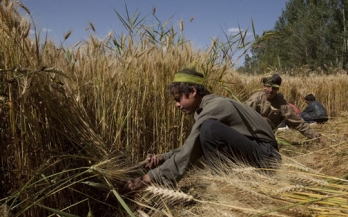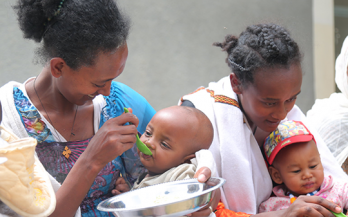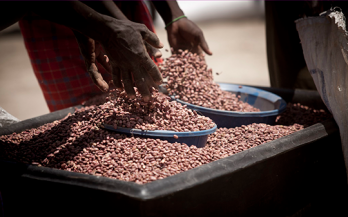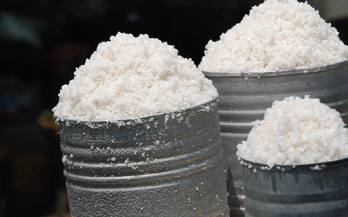


Home fortification of foods with multiple micronutrient powders
- 07/09/2011
Vitamin and mineral deficiencies, particularly those of iron, vitamin A and zinc, affect more than two billion people worldwide. The purpose of this study was to assess the effects and safety of home (point-of-use) fortification of foods with multiple micronutrient powders on nutritional, health, and developmental outcomes in children under two years of age.
Measurement of food consumption for food fortification and other nutrition programs
- 11/09/2012
The objective of this paper is to introduce the reader to the set of papers included in this Supplement reviewing methods and experience with Household Consumption and Expenditures Surveys to inform nutrition, and specifically food fortification programs.
Impact evaluation of food fortification programs
- 20/06/2018
The primary objectives of this chapter are to review methodologies used to date to evaluate the impact of food fortification programs in populations, discuss the strengths and limitations of these methodologies and resulting evidence, and provide recommendations on how such methodologies could be improved.
Nutrition education in promoting iron fortified soy sauce
- 29/12/2016
The objective of this study was to conduct nutrition education based on a market-driven approach guided by the government, in order to develop an effective and feasible model for the promotion of iron-fortified soy sauce in China in one pilot site in the city of Jinhua, Zhejiang Province.
Review of grain fortification legislation, standards, and monitoring documents
- 27/06/2018
The objective of this paper is to analyze the content of documents used to guide mandatory fortification programs for cereal grains. Legislation, standards, and monitoring documents, which are used to confirm fortification, were collected from countries with mandatory wheat flour, maize flour, and/or rice fortification.
Public and Private Sector Dynamics in Scaling Up Rice Fortification
- 01/09/2016
Rice fortification provides an opportunity to deliver essential micronutrients to populations that consume rice as a dietary staple. The objective of this study was to describe miller and public sector experiences and perspectives on rice fortification with micronutrients in Colombia and offer recommendations for policy makers.
Promotion of zinc tablets with ORS through child health weeks improves caregiver knowledge, attitudes, and practice on treatment of diarrhoea in Nigeria
- 01/03/2015
This study examined whether the Maternal, Newborn and Child Health Weeks (MNCHW) in Nigeria would present an opportunity to raise awareness of and demand for the use of zinc and ORS in the treatment for diarrhoea.
Effect of iodized salt on organoleptic properties
- 13/07/2018
Despite the global recommendation for fortification of salt with iodine, including salt used in food processing, most salt iodization programs have focussed only on iodization of household salt. This paper provides a comprehensive review of studies conducted to assess the effect of iodized salt on the organoleptic properties of processed foods and condiments.